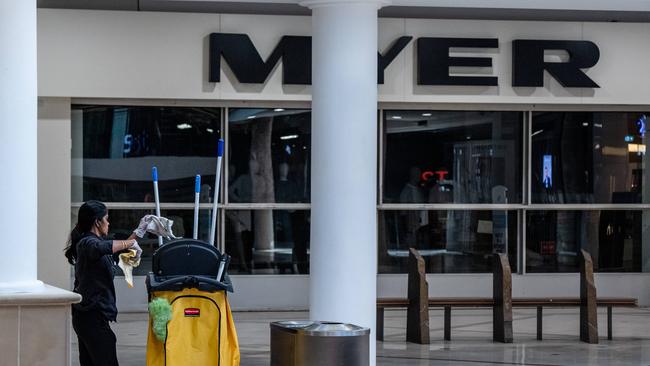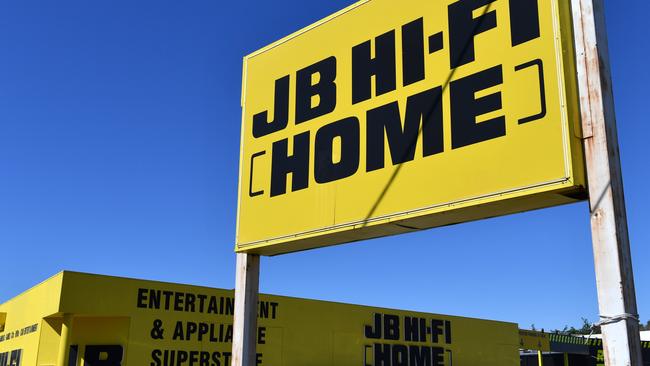Pandemic shopping habits set to transform retail scene
Australia’s lockdown shopping habits are set to transform the nation’s retail scene forever, with a massive shift to online shopping. These are the businesses set to take advantage as households recover from hibernation mode.
Business
Don't miss out on the headlines from Business. Followed categories will be added to My News.
Online sales will permanently surge in the wake of the coronavirus lockdowns — a shift which could result in 20 per cent of all specialty retail outlets closing for good, a new report forecasts.
The sharp acceleration in online shopping will also shift the balance of power between landlords and retail tenants, according to the report from investment bank UBS.
More new data, released by the Australian Bureau of Statistics yesterday, showed retail spending fell by a record 17.9 per cent to $24.73 billion in April, as households went into hibernation mode.
The dive was far deeper than the 10.6 per cent slump recorded in July 2000 when the GST was introduced.

It was also far worse than what most economists had been expecting, and followed a record 8.5 per cent jump in March driven by panic buying which left supermarket shelves stripped of essential items.
Seasonally adjusted sales in the food retailing industry fell 17.1 per cent in April, having surged by 24.1 per cent in March.
In-store shopping at supermarket and grocery stores for non-perishable and perishable goods dropped by 23.7 per cent and 15.3 per cent respectively.
Both categories recorded double-digit spikes in March.
UBS analyst Ben Gilbert said a surge in online shopping experienced during the coronavirus lockdown was not a one-off, and would accelerate store closures. The trend would leave those retailers who had short-term leases and strong online platforms in the best position to deal with the upheaval, he said.
Mr Gilbert said JB Hi-Fi, Premier Investments, Adairs, and Kogan.com were the major retail groups best positioned to take advantage of the changing landscape.
Myer and Wesfarmers were worst positioned, he said.
Mr Gilbert has lifted his forecasts for online sales penetration, excluding food. He expects it to account for 17 per cent of all sales by 2021, up from 10.5 per cent on Thursday.

But online sales would keep growing and could hit 19 per cent by 2024, though that would still leave Australian trailing the penetration rates achieved in the UK and US.
Mr Gilbert said every 1 per cent increase in online sales would result in a 2 per cent reduction in specialty store numbers.
Specialty retail is defined as smaller outlets focusing on a specific product range.
One in five specialty outlets were at risk of closing by the middle of 2024, Mr Gilbert said.
“COVID-19 will accelerate the shift to online retail, store consolidation will accelerate, and retailers with short leases and strong online platforms are well placed — versus landlords — to improve profitability,” he said.
MORE NEWS
TOURISM OPERATORS PLEAD WITH DAN TO PICK A DATE
